Visit to the Quest Center for Integrative Health, USA.
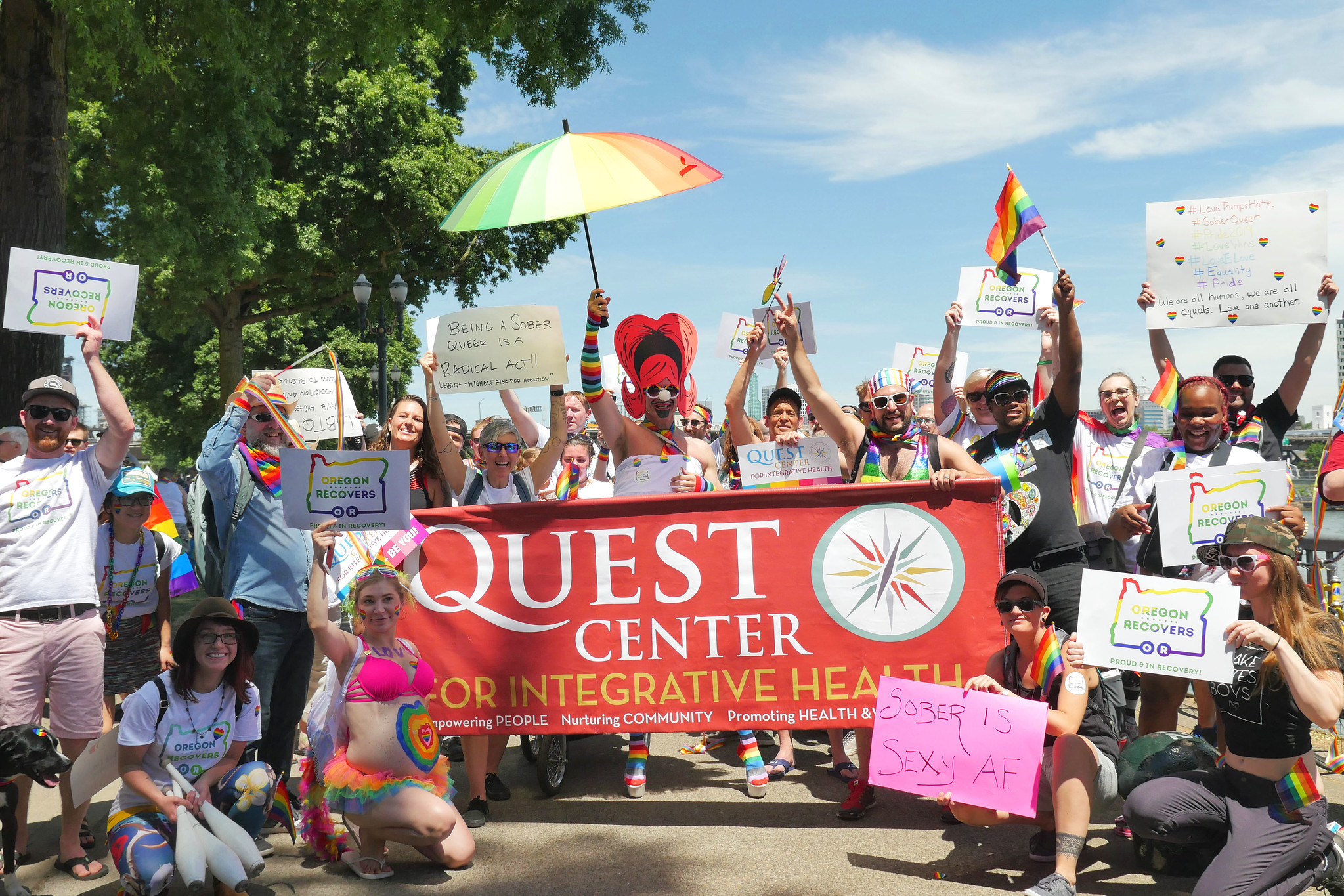 On Saturday 11th September 2021, we had the privilege of visiting the Quest Center for Integrative Health in Portland, Oregon, USA. Virginia Hamida Thomas, SDIA Executive Director, started the visit by explaining that Lusijah Marx and Lucas Harris began the center as a place for psycho-social support for HIV positive men back in the 80s. From a small 2-person project, born from a dream, Quest has become a project with 73 employees and a budget of around 5 million dollars.
On Saturday 11th September 2021, we had the privilege of visiting the Quest Center for Integrative Health in Portland, Oregon, USA. Virginia Hamida Thomas, SDIA Executive Director, started the visit by explaining that Lusijah Marx and Lucas Harris began the center as a place for psycho-social support for HIV positive men back in the 80s. From a small 2-person project, born from a dream, Quest has become a project with 73 employees and a budget of around 5 million dollars.
Lusijah expressed her gratitude to everyone from Quest that helps the project exist and welcomed everyone present, including some members of the Quest team: Wendy Neale, osteopathic & naturopathic physician with Quest for over 20 years; Kara Edge, mental health therapist; Padeen Quinn, naturopath; and Sam Lee, intern.
She said that in modern society, especially in countries like the USA, people have lost a sense of trust and community and have become very individualistic and this was why the sense of community that exists in Susila Dharma and Subud is so important for her. It is also a very important part of the mission of Quest and is one of the things that has motivated her to work past retirement age. (Lusijah is 77 years old).
Participants were then treated to an inspirational video that begins with testimonials from people who have recovered and thrived because of their involvement with Quest Center. At Quest, health problems are not treated in isolation, rather the integrated, whole person is cared for, and there is a powerful sense of community and even a family feeling.
In the next part of the visit, we heard interviews with key people involved in Quest, who answered various questions. The interviews were conducted and the footage edited by Zafira Harnadi, SDIA’s new Communications Assistant. This is a summary of this inspirational virtual visit, but you can watch the whole event here.
The first question was: Can you tell us about Quest’s integrative and wellness approach?
Dr Wendy Neale, Director of Medial Services started her Quest journey in 2000, when they would meet in living rooms with Lusijah and others, trying to create an integrative practice. She is trained in hands-on manipulative osteopathic treatment, involving a lot of cranial work, and also in group therapy. She coordinates groups and retreats with Lusijah and other people at Quest.
According to Wendy: “Quest is different from other models of integrative clinics that I have seen – I have worked in hospitals and on an Indian reservation, but Quest is really committed to working together on a collaborative and supportive basis, as well as independently. We give a very high quality of care, with each practitioner really dedicated to giving the best care that they can in a really good and sound way.
“One of the things that I love the most about Quest is that we offer different approaches, such as naturopathic medicine or Chinese medicine, as well as looking at diet and nutrition. We also have a program to help people with chronic pain and one for people who are dealing with addictions. Our biggest program is our HIV program. We have so many HIV positive folks, and a lot of LGBTQ2 people, and programs that are unique to their needs. The mental health team is the biggest we have and we offer a lot of really fundamental mental health care and different options for people.”
Lusijah Marx is Quest’s co-founder and clinical director, and a licensed clinical psychologist.
“When you have a wellness focus, it’s a very different thing. It’s about looking at and believing that people, whatever their illness, have the capacity for wellness; and that wellness relates to ‘how do I show up today in the fullest way, and how do I receive the guidance to experience this illness, and all that I can do to heal, either in the living or in the dying?’
“So, in a wellness-focussed health care center, the most important thing is for people to really feel the shift to being guided within on a healing path, making that feeling of recovery something profound. It’s about recovering who you are. I want healthcare to move from a model where I see a person by the disease they have to seeing a person by the health and wellness that is within them and that can come through. By being present with them, feeling the spirit within my own self and creating that atmosphere and belief, you can really support people on their healing path and help them to live more fully.
“Living life fully is one of the things we hope that Quest inspires and supports.”
As Subud members, do you think spirituality has an impact on the way you practice medicine?
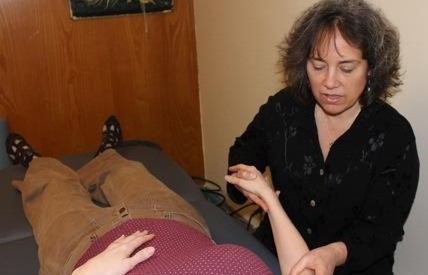 Wendy Neale: “I think that Quest Center is unique and different from other clinics and places that I’ve practised because it really is founded on a principle of allowing that sense of spirituality to come through in everything that we do.
Wendy Neale: “I think that Quest Center is unique and different from other clinics and places that I’ve practised because it really is founded on a principle of allowing that sense of spirituality to come through in everything that we do.
“I feel that when I’m with a patient, I am able to connect with them at a really deep level and there’s often a sense of connecting at a soul level, a spirit level, a heart level … I feel that this is a place where my spirituality can be an active participant and that each of us who works there is committed to the same thing. There is this groundwork of really caring for and seeing the patient as part of a greater whole.
“It’s not that we don’t have our challenges and conflicts – that is a part of everything that anyone does and especially where groups are involved. But just having that commitment to working from a spiritual place really flavors what I do. And Lusijah founded Quest from that place and that has been a huge part of what’s kept me there.”
Lusijah Marx: “Through the years, there have been a number of people who have come to Subud, and it is really gratifying to sense that. I believe every person has the spirit within and can feel that awakening in whatever way it happens, but it is really nice to have people who join us and our Subud community.
That has also been interesting because since we work a lot also with the gay community, we’re probably the Subud group that has the largest number of gay people. Learning how to make that a part of who we are as a Subud community and making room for more diverse ways of being and presenting I think is key to what all of us need to do.”
A part of your role at Quest is to treat patients who are dying. How do you approach death with them?
Wendy Neale: “For me it’s completely up to the patient, the person and where they’re at and what they want. Some people just want to have a place where they can come and be supported in terms of treatment that helps them feel better in their bodies. And some people need and want more of a wraparound care. We have a lot of groups to support people as physical, emotional and spiritual beings. As people get more depleted and need more home care I’ve done a lot of home visits and helped create an environment in their home or wherever they’re at where they feel supported. To me that’s such an important time in people’s lives – both for the patient and their families. We try to help them find whatever they need to be at more peace and make that transition more easily and in whatever way feels right to them. It’s such a unique thing for each individual.”
Lusijah Marx: “The culture in the United States does not really deal with death. It’s seen as a problem, not something that is a natural part of living. Because Quest has a wellness focus, we look at it as a part of life: that within each of us we have the capacity when we’re dying to make that transition just as we have the capacity to grow and learn how to walk and talk as a child.
“In the early days of Quest, over 40 of our people died, and it was a community time where people would choose who would be present, and how to be there. And I’m thinking of the death of a woman with cancer where Wendy and I and some community members were present and this person made the statement that it was actually the best day of her life when she had felt the most loved. That beautiful feeling, that we’re in this together … this is a spiritual event, just like every day of life is, but in an even bigger way.
“I felt so moved by helping this woman have this transition. I believe now that my death will be something that I can do in a peaceful and loving way, having accompanied many people in death.
“A few years ago, somebody called me from Missouri, wanting to learn more about supporting the process of death and dying. It was a woman and her mother asking me for some time. I said I’d be glad to talk with them and give them some guidance and support along the way, in this dying process that the mother was going through. She was in her late 80s and had been very much an activist and a very special person.
“I actually never met the daughter or the mother, but they were wonderful people that I supported through a process until the mother did pass away, and I did it because I received it was the right thing to do – to have these conversations and help them prepar
e for this death. Two or three months after the mother’s death, her daughter contacted Quest, and gave a donation of $250,000! I had no idea that they had any money at all, of course – it was just something I received to do. But that money was incredibly helpful in helping us get through the pandemic because we were going to have to lay off a number of people and it was just going to be challenging to be able to keep our organization running.
“I would say being with Quest for a long time, that there are miracles. Actually, every person is a miracle. But then there are those miracles that happen that you just know there’s more to this when you trust, when you believe, when you put your heart into it and say, ‘I’m here’.”
Can you tell us about future projects you are working on?
Lusijah: “In the last five years, through the efforts of David and others, we have established the first LGBTQ-focused housing for people in addiction treatment, and it has been a wonderful thing. Many of the people from the Portland government came to our opening of this to really celebrate our work with communities. Because we’ve been so good at our finances and infrastructure and because people trust David’s work, we have been asked by our area to be the supportive system for an African-American specific alcohol and drug and pain management treatment program in Portland. This group will be called ‘Miracles’.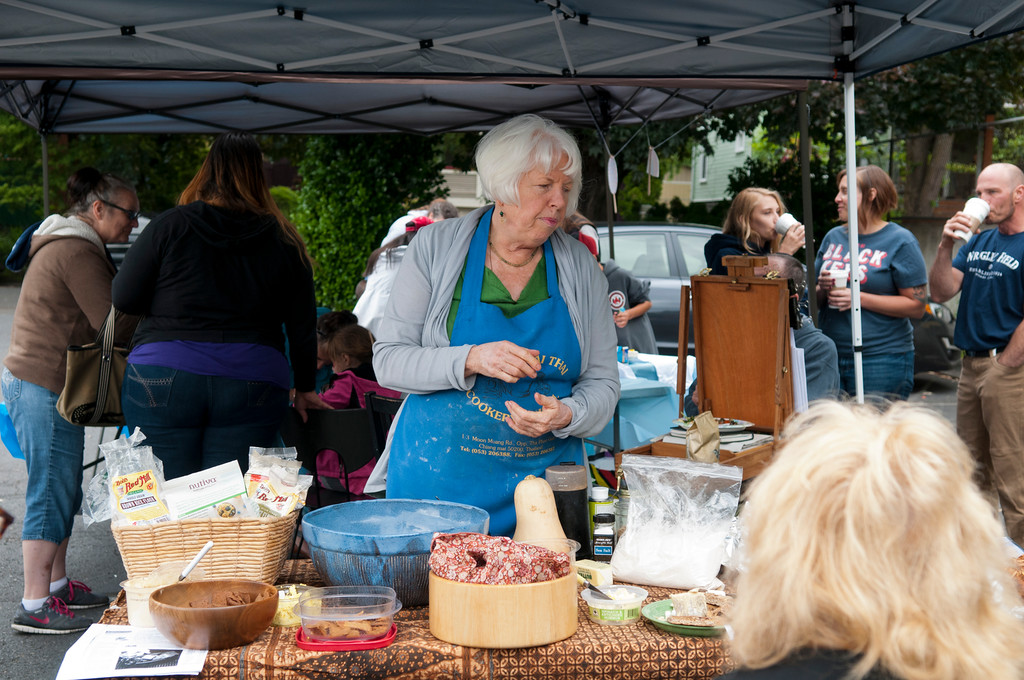
“Quest has this year purchased a 3000-square-feet building which will house all of our programs together. I think this will be a year where we really come into being, as what we’ve always wanted to be, and I’m very excited and happy about this.”
Wendy: “We’ve been working to create a specific ‘trans program’. We have several people who are trans but we’re trying to get the funding right now. We have several big changes with the new electronic records system and the new building, but we also are always working on how to deepen and expand in terms of our programs. Creating a safe space and programs that are really dedicated to people who are trans is so important and it’s so much a part of what we do.
“We have a big commitment to making our services available to folks from every socio-economic background and spend a lot of time getting resources so that we can provide them to people who don’t have money or who are temporarily or long term houseless. We have a sliding scale payment plan, and we offer some services for free if we need to do that to just make it work.”
What are Quest’s main sources of funding?
Dr David Eisen, Executive Director, Doctor of Chinese Medicine, Acupuncturist: “We have a kind of six-legged stool. We’ve got publicly funded healthcare in the United States – that’s Medicare and Medicaid. Medicare started in the early 60s, and it was for blind, aged and disabled people. The following year, Medicaid was set up, and that was for people under a certain poverty level. Then under President Obama, the Affordable Care Act was expanded. However, we don’t have universal health insurance – it’s all privatized and extremely bad. Therefore, we always have to look for creative ways of utilizing those systems to help marginalized people. We then get contracts with municipalities, the county, the city, the state. And then we have grants. And then we have donations. Those are our major funding sources.
“There is some new money under the Biden regime that is coming from the federal government down into the state level for housing. In Portland, in particular, the cost of housing is obscene, it’s very expensive. Most working people can’t afford it, let alone non-working people that come from oppressed and marginalized populations. I was able to form a coalition of other like-minded organizations, so we’re looking at coming together to get hold of some of this new funding and create more housing and services for people who come from the LGBTQ+ community with either a history of substance abuse, or mental health issues.”
Around 70% of the people that come to Quest live below the poverty line. How do you make sure your programs are available to the maximum number of people?
“We have to diversify how we can ensure that the people that need it the most get in to see us. And that’s the Medicaid and Medicare folks – they are the people that have the fewest resources, and it’s actually closer to 80% of the people.
“We do have contracts with different insurance companies for people that have money, but it’s not really our mission. Our mission is to serve underserved and marginalized folks. However, we like to have a mix, so that there are different people with different backgrounds and skill sets, so that different kinds of people can interact.”
How did Quest become this amazing and sustainable non-profit organisation that just keeps growing?
“We have a very dedicated staff that works very hard. When I got here 16 years ago, there were six staff members and now there are 73. I might have had a little to do with that expansion. I told them I would only come on for nine months just to help them out. And now I’m here 16 years later.
“They needed somebody who understood the different funding mechanisms, was able to marry the community and health aspect with the financial aspects so that they could develop the programming and make sure they had sustainable resources for it. Before I got there, there was no alcohol and drug program. There was no housing. There was no development. There was no movement, yoga or Qi Gong. There was no pain program. There was one person who did all of the billing and office stuff and now we have a business office of five.
“I’ve always been in public health and I’ve never been in a private practice so it was always important for me to understand how to be of service to people that need it the most. And you can’t do that on breathing and on good will – you’ve got to be able to pay people and pay the rent. I was able to bring to Quest a certain acumen from my previous experience that helped bring things together.”
“I don’t want to escape from my life anymore. I want to be present in my life.”
We wanted to know how Quest had dealt with and responded to the COVID-19 pandemic. This short fundraising video says it all.
The video tells the story of a woman in recovery from addiction to alcohol during the Covid-19 lockdown. She was cared for ‘virtually’ by Quest’s Finding and Sustaining Recovery Program. It underlines the importance of trust in the community and conveys a powerful life-affirming message.
“Quest saved my life”.
Three long-time members of the Quest community also shared their experiences at Quest with us.
Tabor: “Well, I started at Quest around, ‘95 or ’96. I had sobered up out of the bar community 10 years previously, but I had a partner who left me when I was getting sick because it scared him. I was on the angry side but Quest saved my life. It was during a time when AZT was killing a lot of us because we were taking too much of it.
“I know the people who were still on it were the ones that were dying, fastest, and I stopped, on my own to start with, and then came to Quest. Quest and Lusijah specifically kept us alive with the different modalities they used; we were taught just to dream about fighting our disease. And then we had a lot of other things that helped our bodies out. I got acupuncture and lots of massage, naturopathic help, Chinese medicines.”
Greg: “I joined Quest when it was an experimental support group, there were about 8 to 10 guys in it, all with HIV. This was back in the 80s. And my friend told me about it, because there were no drugs at the time and I didn’t know what to do, and I was freaking out. My friend Bob, who was a member, took me there, and I immediately became engulfed in my healing process. Pretty soon I was dreaming about just healing, you know, and killing the virus in my body.
“And it got me all the way up to when AZT was on the scene, unfortunately, and this took me down several notches. The doctor took me off it very quickly, but it was Quest that was instrumental in bringing me back.”
Would you say that Subud and spirituality helped you in your healing process?
Tabor: “Definitely. A year after I was in Quest I was having a kind of a spiritual dilemma, because I was actually more cognizant after coming to Quest, about where I was in my life. Lusijah told me about Subud and about how it worked, and that sounded really enticing to me and so I went to find out about it and after two months I was opened and it was magical.”
Greg: “I was pretty agnostic about believing, and God. When you’re that sick, just in order to heal, first you have to believe, but I didn’t even understand the word ‘belief’ or how to put your body and soul into believing that something magic is out there. I had to get from point A to point D in my healing process and I didn’t even know what point B or point C were. And Subud was just the perfect puzzle piece for me to complete my existence and my community and my healing.”
Mira Spies: “My early days also were the early 80s; I was already doing therapy with Lusijah on and off, and I had breast cancer. I joined Subud in the early 80s. It’s been a tremendous support, and continues to be part of my life.
“You could say that my ‘melody’ has been depression and anxiety. I really feel that I turned a corner that I would not have turned without Lusijah’s support, without the multitude of workshops, the psychodrama workshops, which were transformative, to say the least. You can begin a weekend with a room full of strangers and at the end of the weekend, it’s as if you’ve known each other forever. It’s a deeply intimate sharing time that I can’t really compare to anything else in my life. Subud has been… it’s hard to describe but I would say that it’s definitely a part of me now. I claim it, or maybe it claims me.”
You have known Quest since the beginning. What would you say has changed the most?
Tabor: “There are so many more people there now. It started mainly with gay men, and Lusijah got the men to vote on whether they wanted to include the women who had breast cancer, and it was an overwhelming ‘yes’.”
Greg: “We had women with HIV that were in the group as well. “
Tabor: “Yeah, we already had some of the women there but they wanted to start a specific program for women and everybody said ‘of course’.”
Greg: “Before Quest I always felt when I went to the doctor, or other places when I was looking for healing, that people would always reach down and say something like: ‘Here you go. We’re so sorry – take this and move along.’ But at Quest, they bring you in and you’re part of it, and you get what you need out of it. And if it doesn’t exist, they’ll create it.
“I mean, it just feels like a magical realm for healing, where you’re not this victim sick person, you are a protagonist, going in to get what you need to survive and live a healthy life.”
Wendy: “What has kept me there for so many years is the commitment and dedication, and that love and the spiritual aspect within the people that I work most closely with – Lusijah and other people – and feeling that inspire other people. Lusijah, having been our founder and creator and having been there for so many years, is still the one who sees more clients or patients every day, every week than any of us. None of us can keep up with her and we’re always saying, ‘How does Lusijah do that?’
“We all get frustrated with things but it’s such inspirational work and we all do our best in the space that is held for us by Quest.”
Lusijah: “Quest for me is certainly not a job and never has been or I would certainly not be there at this point in my life. But I love doing the work. I love being with the people that I see and watching them be inspired, or go through the struggles and feel supported. And I love working with people like Wendy who are as committed as I am. That means a lot.”
Questions and discussion
Throughout the session, participants commented and asked questions. Here are some of what was said in the discussion periods.
Has the COVID-19 pandemic helped develop learning or have you seen any parallels with what you went through in the past (in the HIV/AIDS epidemic)?”
Lusijah: “I certainly do see parallels. In a pandemic, everything is just uncertainty, and not knowing what’s going to happen or who’s going to be sick. There is that sense, again, of how important community is, with all the fear and all the different unknown-ness. Working out how to roll out our services and how to support and care for one another is hard in times like this where all of our staff have the same fears as the folks who are coming in. I believe the commitment is to provide services and to show up for each other and define different ways to do it. We’ve taken this year to really also focus on diversity, inclusion and how important equity and justice are for all people, and to look at this as we go through the pandemic and try to open in a bigger way.”
Wendy: “I’m one of the few people who has been working on site full-time with patients. Most of our staff has had to do things virtually, which makes such a big difference in terms of having to establish community amongst ourselves in different ways and be really conscious about that.
“It’s also about being conscious of clients and how isolated they feel and at the same time how they are nervous about physical contact. And then you can just feel the patients need to really be with people and be touched at all levels. Lusijah and I are used to doing retreats two or three or four times a year at the coast for a weekend and we haven’t been able to do that; so we had some zooms where we are trying to bring people into the community. Some people have died during the pandemic from different causes and we have tried to figure out how to really honor them despite not being able to be together physically.
“There’s a lot of need out there and I know the mental health folks, and our naturopath here – they’re all working really on a deep level trying to support people with all those emotional and spiritual needs as well as the physical needs.”
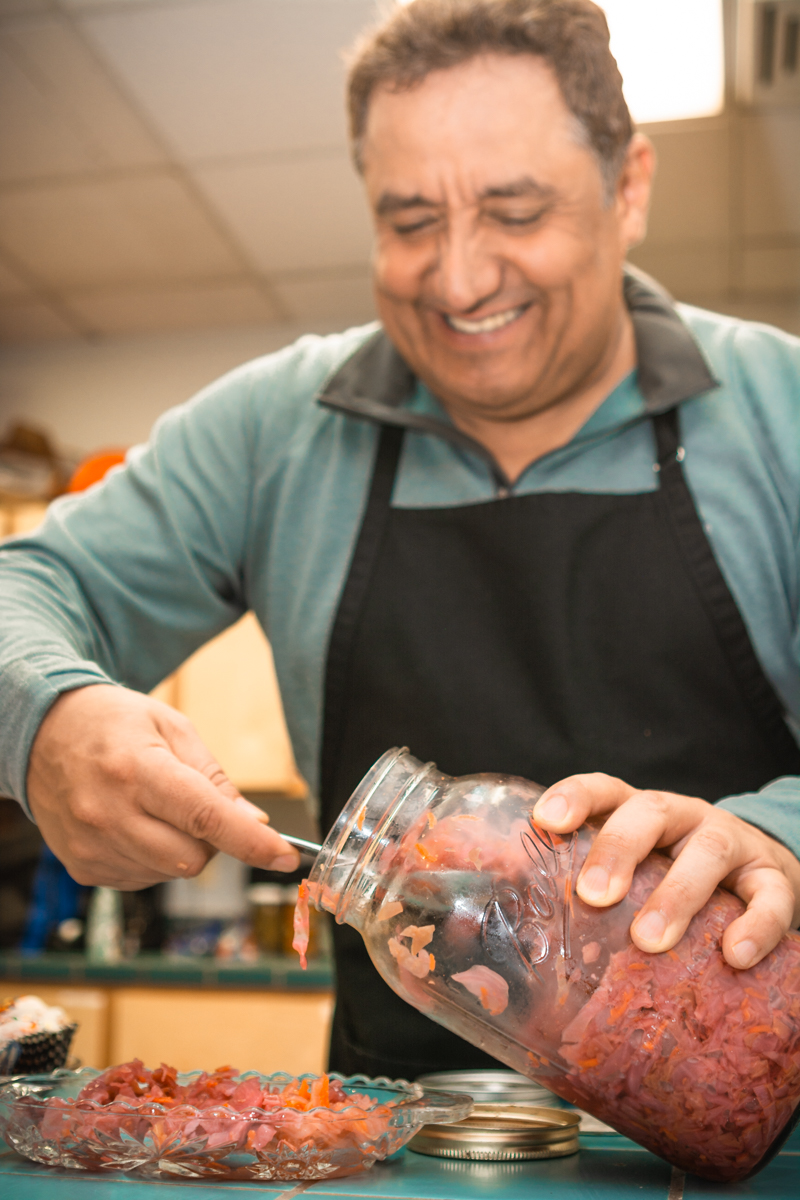 Lusijah: “Our nutrition program has become one of delivering food to people to serve their specific needs so that people can continue in a healthier way. SD USA has certainly helped support that program now and through the years.”
Lusijah: “Our nutrition program has become one of delivering food to people to serve their specific needs so that people can continue in a healthier way. SD USA has certainly helped support that program now and through the years.”
Wendy: “Our nutritional program was held every Thursday night when we would have 30 to 40 people come together, including some practitioners, but mostly people from all the different communities that we serve and that was such an important social time for people to be together. We haven’t been able to do that at all in the last year and a half, so we have been trying to find creative ways where people can touch each other in our groups. It is challenging.”
Portland has been the hotbed of clashes between extremist views. And I’m wondering how that’s impacting your practice considering the very difficult climate here in Portland. We have a lot of homelessness and other aspects of the world’s crises. Do you have any thoughts about how to address any of that?
Lusijah: “So many people are affected; we see a wide variety of folks and some of them live in the areas where a lot of folks are without houses and can be in challenging situations. Some people don’t feel safe with all this going on and some have had some scary and violent interactions around some of the protests that have occurred. I believe we can bring a sense of grounding and spirituality, that we all have to stick together. We all have to do our diversity and inclusion work so we begin to look at how to create a more loving world. Quest can stand for that, and we need to be the people who help that to come through, help people not give up or shut down, but feel like they’re a part of something and that we can work together to help the world be a safer place.”
I am curious about the housing project that you’re starting, what is your role in the housing project and what does that look like?
Lusijah: “The house that we mentioned previously is actually a beautiful house on Burnside in Portland, and it has a house manager. It has people who are in alcohol and drug treatment, and are getting services that will help them learn how to be able to get their own place and get employment, which will be the next step. We are providing a kind of wraparound service and support.
“Anything that we do that way has to be with community partners, for example we are involved with a program called Bridges on this housing project. We want to provide housing in a way that would then allow for a next step for people to maintain clean and sober living for long enough to be able to re-create their lives and be fully present in the world. So, it’s always about collaboration.”
Hamida: “Covid 19 has made us all so much more aware of the social barriers to health. Quest is a model of that interaction that people often don’t see – between the health aspect, socio-economic factors, racial factors, all the factors around sexual orientation, all the factors that marginalize people and put them at greater health risk.
“And I think that here, your team has something to teach us about holistic health. Covid has shown us how certain categories of workers are much more vulnerable. Even in Canada where we have a social health care system, the black population is nine times more likely to contract the virus, for a lot of reasons, so I think that you’re really teaching us something incredible – by integrating housing with all these dimensions of care.”
Hamida also pointed out that Quest has an amazing executive director in David Eisen who has really built the capacity of the organisation to take on so many programs.
Lusijah: “When we were really beginning and didn’t have any funding, David let us use the basement of a building that he had, for $200 a month including utilities. He supported our program and learned what we did at the same time. He learned too about the importance of spirituality as a part of all of that and about doing things in an integrated way. At a later time, he actually approached us and said, I’d like to serve as your executive director to help you become visible. I’m very grateful that it all came together, through Spirit, I believe.
“You just have to have the money, or you can’t hire people or treat them as they deserve, and so you have to have a strong person in that position. I would also say in the beginning I kept looking for someone similar to fill that post and tried different things. It was actually very challenging until David came to join us.”
Question: How did it feel to be right at the center of the guiding force for this sustainable project that has grown and is inspiring us all so much?
Lusijah: “It is the sense of trust that there is a wisdom and a kind of living from that guidance, and a trust that if I follow, things will turn out. I did struggle – at one point I ended up living in a basement and being sued for $9 million. The dream was important in the sense of it being a true receiving that this was something that could become more available. I wish that it were bigger and stronger and could influence our health system in a greater way. We have seeds and we put them forth, and a lot of our folks go out and do more. But I’d say trust is key.
“Another thing that I think is important is that we use peers. Our model of healthcare in the United States can be so hierarchical and people at the top make a lot of money and people at the bottom are on food stamps, and so it’s important to have folks who have ‘lived experience’ as a part of almost all of our programs who can help people believe it’s possible to change and that you have to trust and stay with it.”
Kara Edge: “I’m a mental health therapist at Quest, and I just wanted to share a little bit about my experience being at Quest for the last four years. I actually came to Quest after a period of time in my life that was very difficult – going through cancer treatment. My life had kind of fallen apart and I was just getting back on my feet, and I was just really embraced by the Quest community, and have really gotten back to my own spirituality through that process. It’s been such a gift to be part of this community. During the pandemic, we have so many folks who have relied on Quest as their one connection, their one lifeline, to the outside world.
There was one woman who got Covid early in the pandemic and lives alone in subsidized housing. I went to take food to her home one day and she asked if I would walk with her outside and she began weeping saying: ‘I haven’t been around another person or been outside my apartment for six months’, and it was such a gift to be able to be present with her and share that moment of breathing and some fresh air and having some human connection. So I have a lot of gratitude for this community.”
Padeen Quinn: “I’m a naturopath at Quest, and I came there in 2011. For me what was so moving about Lusijah’s dream and the manifestation that is Quest now, is that she started with what was in front of her – what was right there. She trusted and believed in it, starting with this small step. And it’s like a plant – you plant the seed and give it love and attention, despite the weeds, drought and locusts – all kinds of things that happen.
“I’m so happy to be part of this beautiful garden and harvest that is Quest, so thank you to all of you for your love and faithfulness and to Lusijah and Wendy, all my colleagues – my colleagues are amazing, devoted people that have given themselves to the transformation of all of the people that they come in contact with, so Quest is the real deal. And we’re grateful.”
Hamida: Thank you for sharing that. I think a lot of people look at Lusijah and Quest today and say, ‘Wow, How did she do that?’ It’s almost discouraging because it’s grown so much, but they forget that it started with a dream and then one simple step and then another and another. Then 30 years later, that’s what you have, when you follow through. But that is the essence of our lives, of our being on this earth: that dream, and follow-through on follow-through.”
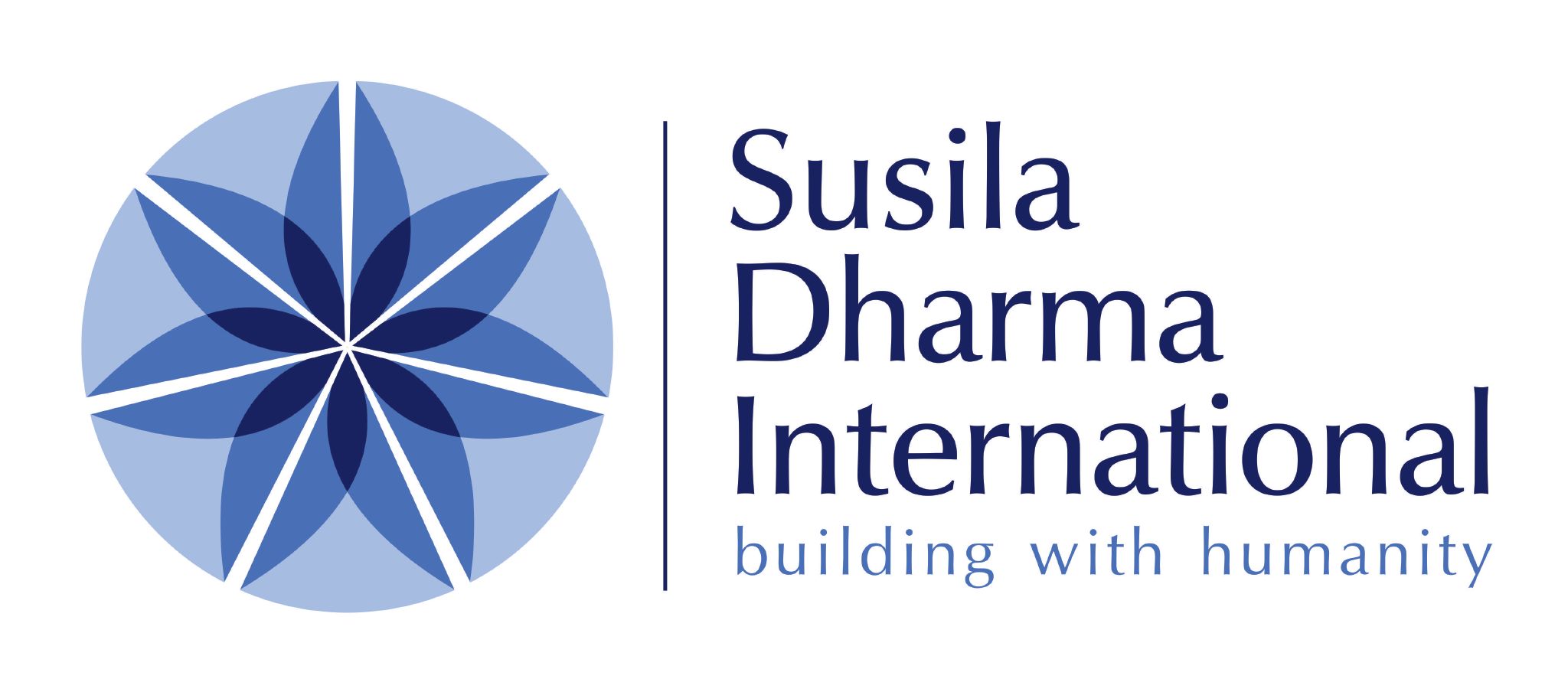
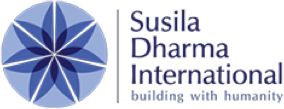


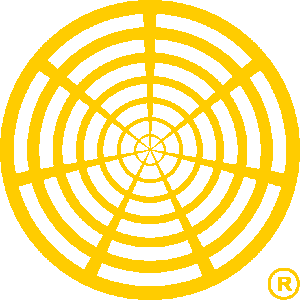

Recent Comments